The Society for the Advancement of Chicanos and Native Americans in Science
Campus Organization
Meet the Officers
President
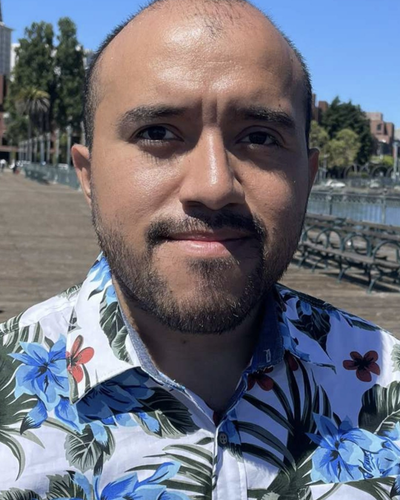
Raymundo Lerma
Raymundo, born and raised in Colorado, is a Molecular Biology PhD candidate at the University of Colorado- Anschutz. He earned his B.S. in Molecular Biology from the University of Denver double minoring in Chemistry and Spanish. Raymundo currently works in the Caino lab where he is interested in understanding molecular mechanisms related to mitochondria that drive tumor progression. Prior to returning to academia Raymundo spent more than half a decade working in various scientific professions such as an organic chemist, microbiologist, and a molecular biologist. Raymundo is a big proponent of the community and has served on the board of various community organizations. Raymundo identifies as a gay, Latino, and Mexican-American.
Vice President
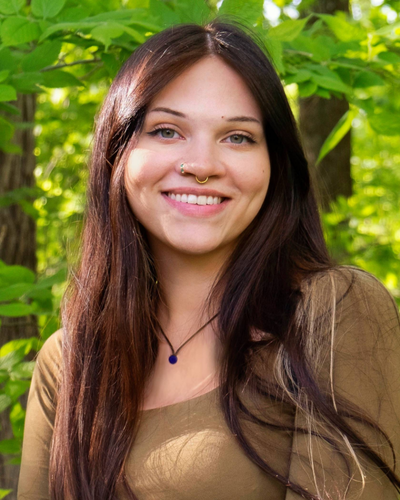
Grace Gustafson
Grace is a PhD candidate in the Molecular Biology program. She is originally from Madison, Wisconsin, but moved to upstate New York to pursue a Bachelor’s degree. She ultimately transferred to Arizona State University, completing a B.S. in Biological Sciences. She spent several years as an undergraduate and a laboratory technician at the University of Wisconsin-Madison studying caloric restriction and aging. Now in graduate school, she studies developmental buffering mechanisms of start codon mutations in a zebrafish model in the lab of Dr. James Nichols. Off campus, she loves art, hiking, playing guitar, tabletop RPGs, and reading about local history.
Secretary
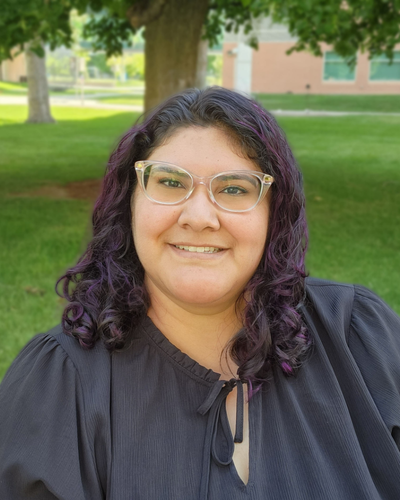
Brittany Gomez
Brittany Gomez is a PhD candidate in the Immunology Program. Her passion for studying viruses developed at a young age, inspired by her mother, who worked as a nurse in a clinic specializing in women and children with HIV. Brittany earned her B.S. in Molecular, Cell, and Developmental Biology at UC Santa Cruz and is now focused on macrophage biology and the mechanisms of trained immunity in the context of gammaherpesvirus infection. She works in Dr. Eric Clambey's lab, where she investigates how vaccination strategies affect myeloid cell development and function. Outside of the lab, she enjoys taking her dogs to the park, sewing, and binge-watching Netflix shows.
Treasurer
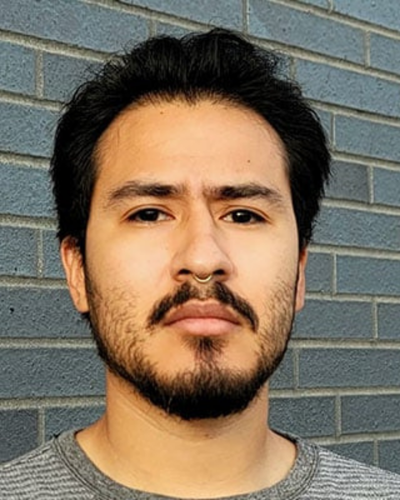
Oscar Muñoz
Oscar is a Molecular Biology student at CU Anschutz. He earned his B.S. in Physiology/Neuroscience from the UC San Diego in La Jolla, California. Oscar is in Dr. Sujatha Jagannathan's lab where he is interested in understanding nonsense-mediated decay escape mechanisms. Outside of the lab Oscar is passionate about teaching and supporting students interested in STEM careers. Oscar is also on the board of J-KOA, and contributes a significant amount of time to outreach. Oscar loves friends and family and playing music in his free time. Oscar identifies himself as a Mexican-America/Latino.Deputy Treasurer
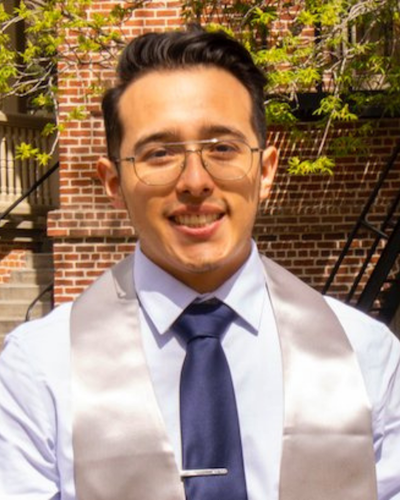
Jordan Lemus-Reyes
Jordan was born in Emporia, Kansas, but lived in Las Vegas, Nevada. He is of Central American descent; his mom is from Guatemala, and his dad is from El Salvador. Jordan moved to Reno, NV, where he earned my B.S. in Microbiology and Immunology at the University of Nevada, Reno. Following graduation, he worked at Charles River Laboratories. He joined the BSBTs Master’s Program at the University of Colorado School of Medicine in 2023. His research topics include how humoral immunity drives viral evolution in the hemagglutinin in post-2009 influenza (H1N1) viruses. In his free time, Jordan loves going to the gym, concerts/raves, and outdoor activities, such as snowboarding and hiking.
Campus-Community Liaison
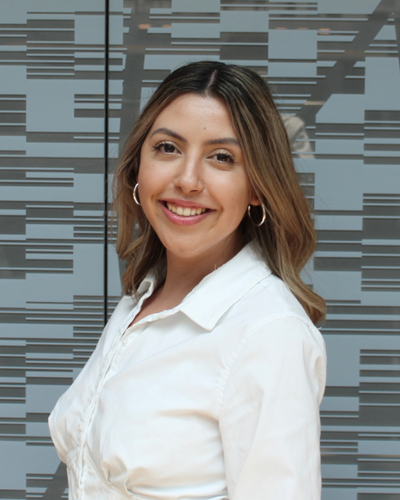
Roxana Gutierrez
Roxana was born and raised in Albuquerque, New Mexico, on the foothills of the Sandia Mountains. She attended the University of New Mexico and earned a BS in Biology. She has always loved science and has always had a curiosity for understanding the world around her and how the human body functions. Roxana was a dancer most of her life, reaching the pre-professional level by the time she was in high school. However, she always knew that she wanted to pursue a career in science. Roxana moved to beautiful Colorado to attend graduate school. She began her PhD training in the Biomedical Sciences Program (BSP) here at CU Anschutz and knew early on that she wanted to join the Cells, Stem Cells, and Development (CSD) program. Roxana loves dancing, hiking, camping, attending musical festivals, and spending as much time as possible with her dog. She is involved with the SACNAS chapter here at CU Anschutz, where she is committed to cultivating an inclusive community for all.
National Liaison
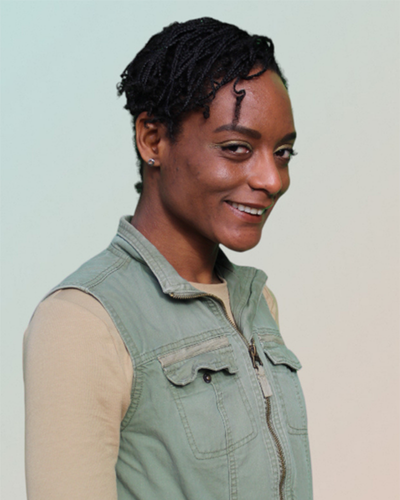
Kadidia Adula
Kadidia is a postdoctoral fellow in the Appel lab. She investigates neuro-glia interactions with a focus on the role of resident myelin transcripts in myelin plasticity. She completed her PhD at The University of California, Los Angeles and her Bachelor’s degree at Brooklyn College of the City University of New York. In her free time, Kadidia likes to paint canvases using acrylic and make complex, delicious vegan meals from scratch. She recently got into running and hopes to soon transition from the treadmill at the gym to outdoor trails.
Social Media Coordinator
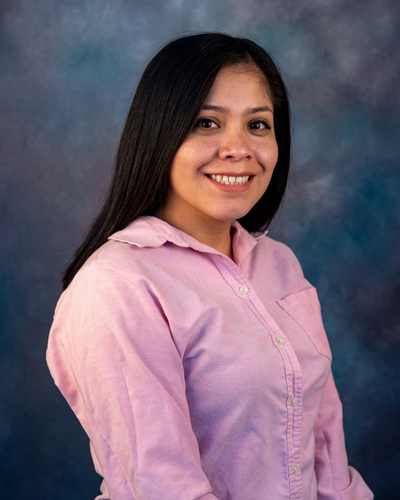
Grecia Rivera
Grecia Rivera is a PhD candidate in the Microbiology program. She was born and raised in Peru and she is a first-gen student. She majored in Engineering in Food Science and Technology at Zamorano University (Honduras). Her senior year of college she did an internship at the University of Arkansas and that’s how her passion for research started.
Before starting her PhD journey, she worked as a scientist at Duke University in the Biomedical Engineering Department and the Gastroenterology Division. Currently, she works at the Theiss Lab, trying to deciphering how mitochondrial proteins play a role to protect the human gastrointestinal tract against enteric pathogens and to shape the profiling of M cells to enhance protection and immunity. An additional interest of her is to understand how these mitochondrial proteins affect colorectal cancer and IBD pathogenesis. Outside the lab, Grecia loves running long distances, dancing and hanging out with friends, and exploring outdoors.
Native American Affairs Officer
Koya Conradson
Koya is a PhD candidate in the Cells, Stem Cells, and Development (CSD) program. He founded J-KOA, and is spending this academic year running the outreach program and donating some of his time as our interim Native American Affairs Officer.
Chapter Advisor | Professor

Carlos Enrique Catalano, PharmD, PhD
Carlos was born in Hollywood, California and grew up in Southern California. He eventually moved to San Francisco, where he graduated from San Francisco State University with a B.A. in Biochemistry. He then attended the University of California San Francisco, where he received his Pharm.D. in Clinical Pharmacy (1983) and a Ph.D. in Medicinal Chemistry (1987), studying under Dr. Paul Ortiz de Montellano. He next received an NIH post-doctoral fellowship and trained with Dr. Steve Benkovic at the Pennsylvania State University. Carlos started his independent research career as an Assistant Professor of Biochemistry at the University of Colorado Health Sciences Center in 1989; he moved to the University of Washington School of Pharmacy in 2006 ... and then returned to Colorado in 2016, where he is currently a Professor of Biochemistry and Biophysics. His research program focuses on understanding how a virus "puts itself together" using biochemical, biophysical and structural approaches. Carlos has been a member of SACNAS since 1990 and is honored to be the SACNAS Anschutz Chapter Advisor. Biking, hiking and sailing are among the activities that keep him busy outside of the lab.